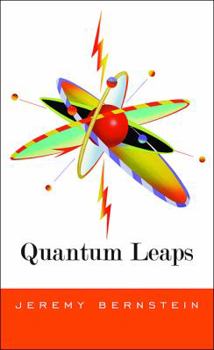Quantum Leaps
Select Format
Select Condition 
Book Overview
In 1953, reflecting on early ventures in quantum theory, J. Robert Oppenheimer spoke of terror and exaltation, of history happening in a realm so remote from common experience that it was "unlikely to be known to any poet or historian." Yet now, anyone can Google "quantum theory" and find more than 34 million entries--from poets and historians, certainly, as well as film critics and Buddhist monks. How--and how pervasively--quantum mechanics has entered the general culture is the subject of this book, an engaging, eclectic, and thought-provoking look at the curious, boundlessly fertile intersection of scientific thought and everyday life. Including recollections of encounters with the theory and the people responsible for it, Jeremy Bernstein's account ranges from the cross-pollination of quantum mechanics with Marxist ideology and Christian and Buddhist mysticism to its influence on theater, film, and fiction. Along the way, Bernstein focuses on those--such as Niels Bohr, the Dalai Lama, W. H. Auden, and Tom Stoppard--who have made quantum physics; who have argued over it, pondered it, or taken literary inspiration from it, and who have misunderstood, misconstrued, or misapplied it. One person in particular supplies a narrative thread: John Bell, a notable yet underappreciated physicist who did groundbreaking research in quantum physics. In Bell's story, Bernstein provides a uniquely readable account of what physicists call the "measurement problem." Quantum Leaps is a lively, erudite book on a subject that Bernstein has lived with for most of its history. His experience and deep understanding are apparent on every page.
Format:Paperback
Language:English
ISBN:0674060148
ISBN13:9780674060142
Release Date:May 2011
Publisher:Belknap Press
Length:230 Pages
Weight:0.70 lbs.
Dimensions:0.7" x 4.2" x 6.8"
Customer Reviews
0 rating





